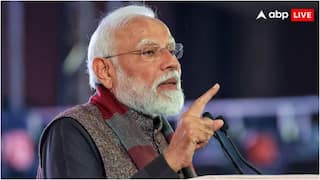Monsoon Session: Centre To Table Bill To Amend Weapons of Mass Destruction Act — Know All About It
The Lok Sabha unanimously passed the Weapons of Mass Destruction (WMD) and their Delivery Systems (Prohibition of Unlawful Activities) Amendment Bill, 2022 after it was introduced on April 5.

New Delhi: The Centre is scheduled to table a Bill to amend the Weapons of Mass Destruction and their Delivery Systems (Prohibition of Unlawful Activities) Act, 2005 in the Rajya Sabha. The Bill called the Weapons of Mass Destruction and their Delivery Systems (Prohibition of Unlawful Activities) Amendment Bill, 2022 will be moved to the Upper House of the Parliament after the legislative business commences in the afternoon, reported news agency ANI.
External Affairs Minister S Jaishankar will move the Bill to amend the Act after it was approved by the Lok Sabha, as per the list of Business of Rajya Sabha.
ALSO READ: Monsoon Session | 32 Bills Indicated By Various Departments, 14 Ready: Government (abplive.com)
On April 5, the Weapons of Mass Destruction (WMD) and their Delivery Systems (Prohibition of Unlawful Activities) Amendment Bill, 2022 was introduced in the Lok Sabha. The bill was unanimously passed on April 6.
The Bill amends the WMD and their Delivery Systems (Prohibition of Unlawful Activities) Act, 2005 which prohibits the unlawful manufacture, transport, or transfer of WMD (chemical, biological and nuclear weapons) and their means of delivery. It also aims to prohibit making available funds, financial assets, or economic resources for any prohibited activity in relation to weapons of mass destruction and their delivery systems.
The bill was supposed to be tabled today but the House has been adjourned amid ruckus by the opposition on hikes in GST rates and inflation.
What was the need to amend the existing law?
The statement of the objects and reasons of the bill states that the regulations relating to the proliferation of weapons of mass destruction (WMD) and their delivery systems by international organisations have expanded in recent times, reports news agency ANI.
The United Nations Security Council’s targeted financial sanctions and the recommendations of the Financial Action Task Force have mandated against the financing of the proliferation of weapons of mass destruction and their delivery systems.
The 2005 Act prohibited the manufacturing, transport, and transfer of weapons of mass destruction, and their means of delivery.
What does India’s 2005 WMD Act signify?
Even as there is no accurate definition of a WMD in international law, the expression is typically understood to include nuclear, biological, and chemical (NBC) weapons.
As per the United States Department of Homeland Security, “A weapon of mass destruction is a nuclear, radiological, chemical, biological, or other device that is intended to harm a large number of people.”
* The details of the act in the ministry of the external affairs website describes 'Biological weapons' as “microbial or other biological agents, or toxins…of types and in quantities that have no justification for prophylactic, protective or other peaceful purposes; and weapons, equipment or delivery systems specially designed to use such agents or toxins for hostile purposes or in armed conflict”; and
* “Chemical weapons” as “toxic chemicals and their precursors” except were used for peaceful, protective, and certain specified military and law enforcement purposes; “munitions and devices specifically designed to cause death or other harm through the toxic properties of those toxic chemicals”; and any equipment specifically designed for use in connection with the employment of these munitions and devices.





































